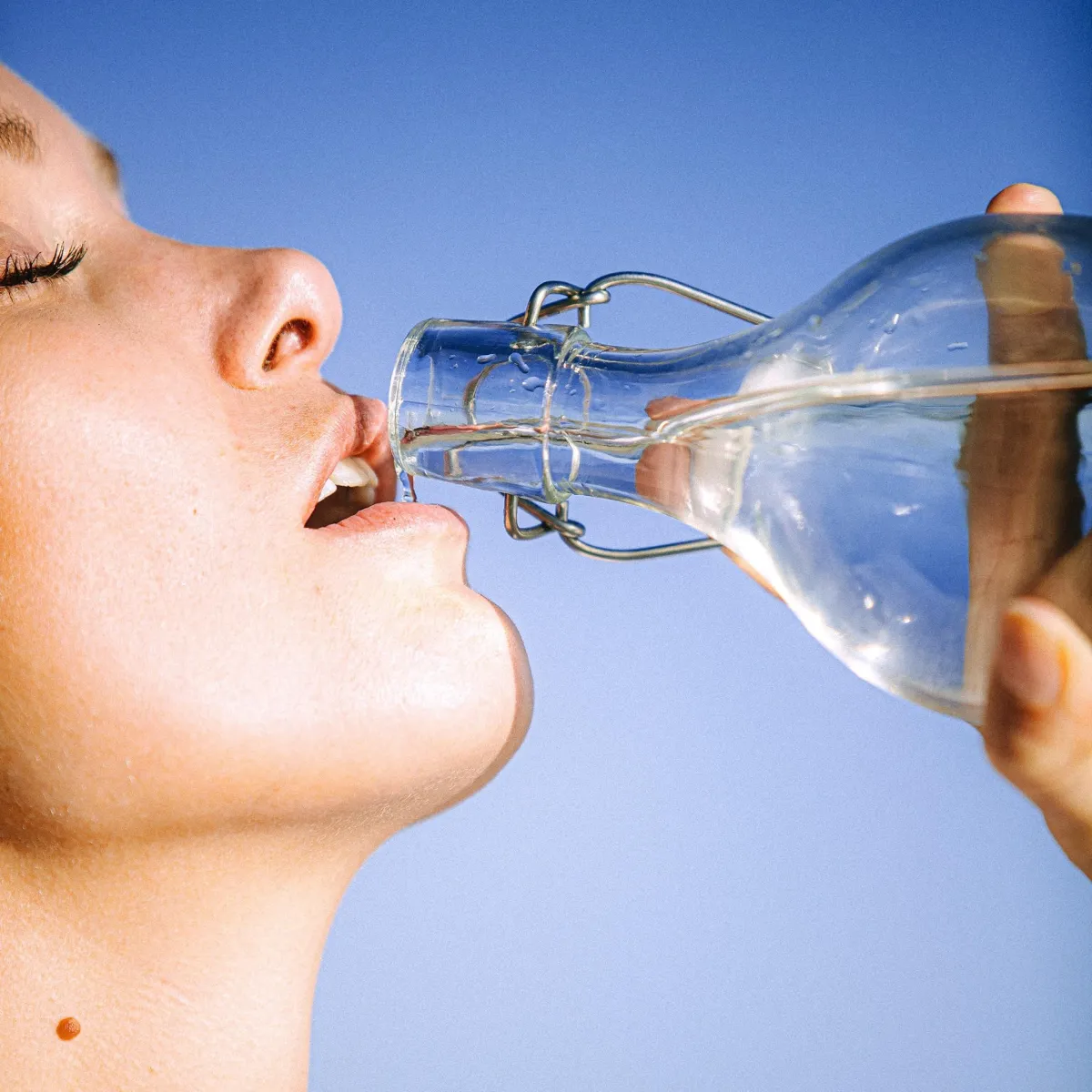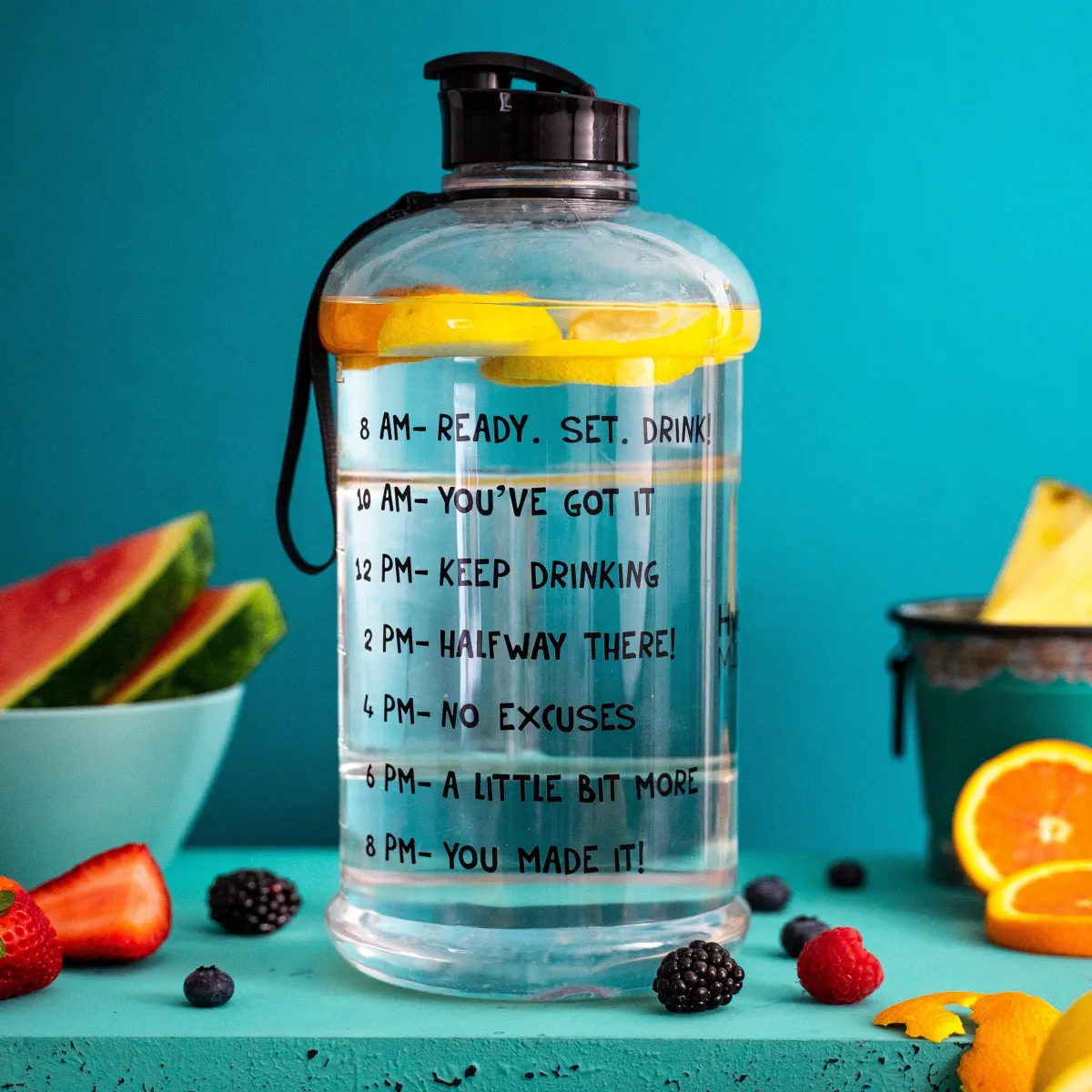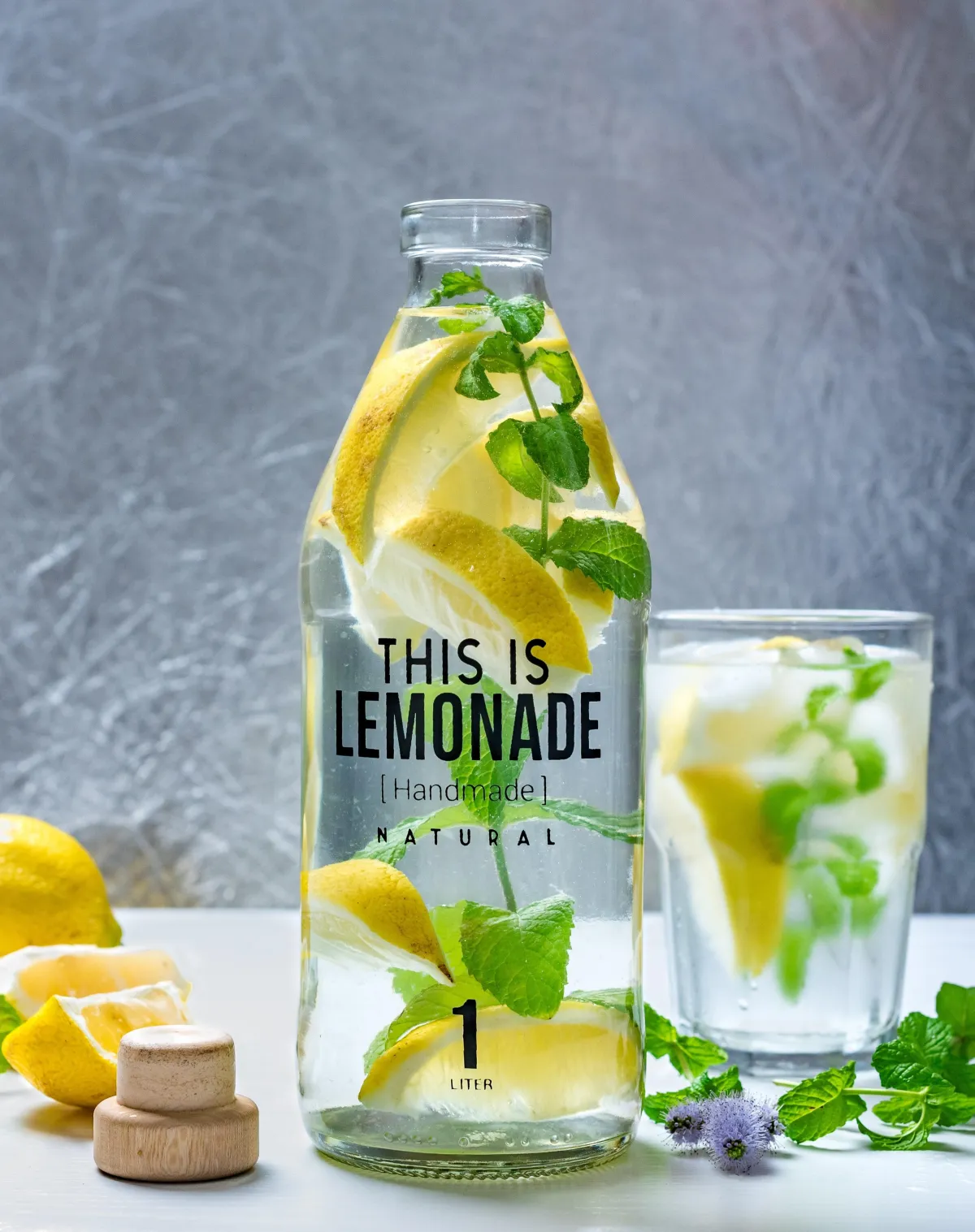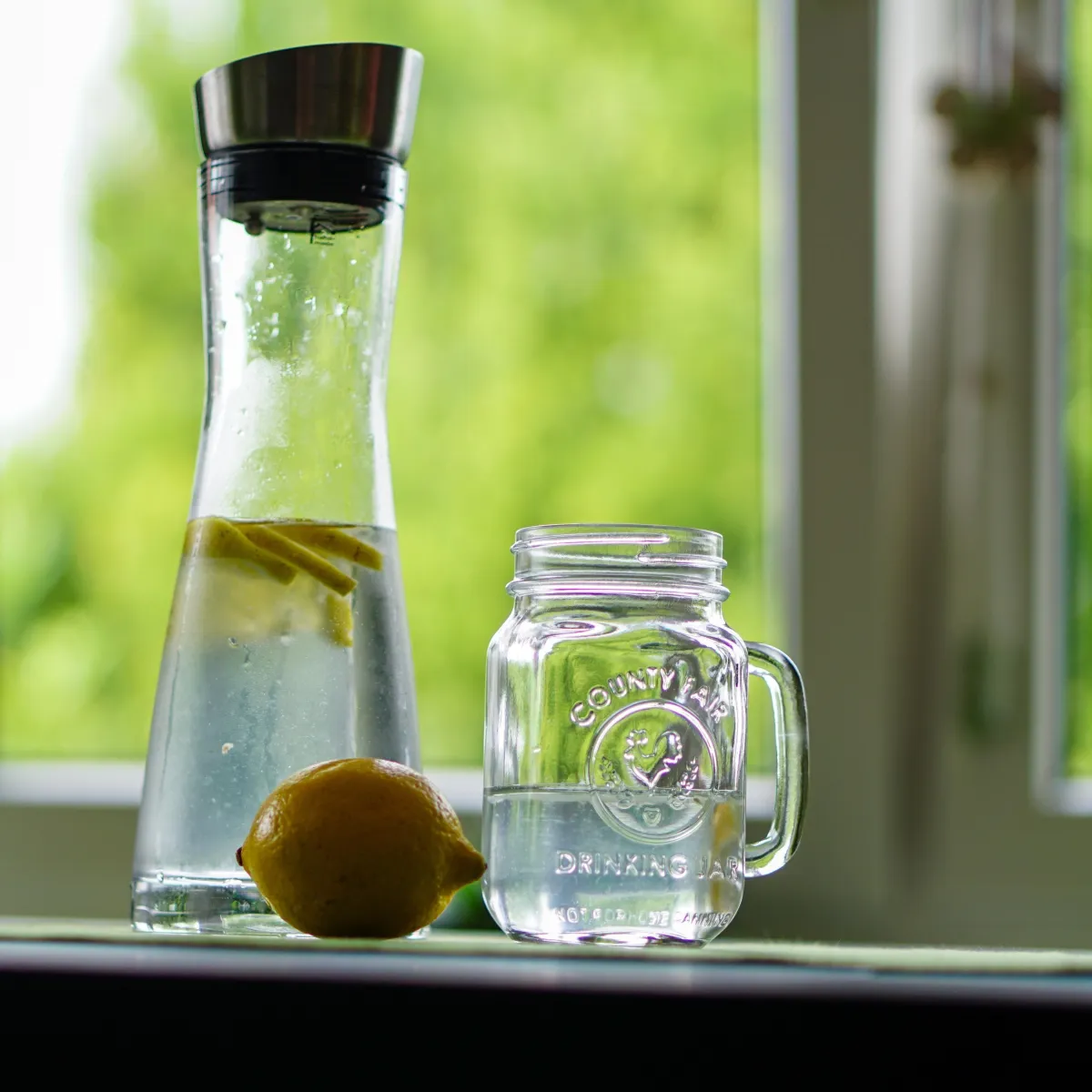BITESIZE HEALTH HACK #2

YOU ARE INVITED TO…
Drink it In
I’m not gunna lie – if you’re not getting enough water and sleep, then you’re probably wasting your time on ANY other efforts towards increased energy. As one study says “As undoubtedly the most important nutrient and the only one whose absence will be lethal within days, understanding of water measurement and requirements are very important.3
Even mild dehydration can leave you feeling fatigued1, listless4, moody1 and headachy3, while considerably decreasing your athletic3, cognitive1,2 and motor skill2 performance. It can also impair your digestion and cause constipation4.
Water is essential for life – it keeps you alive1,3!
But if the whole being alive thing isn’t enough to persuade you to drink more water, then perhaps you’ll be convinced by the fact that it also makes your skin soft and dewy1,3 and helps you to lose weight, especially if it replaces higher calorie drinks1.
Cool, so drink more water? You knew that already, right? It sounds simple, but like most healthy habits, it’s easier said than done, especially when you’re tired and burnt out. That’s why our hack #2 is a super easy system that allows you to drink water gradually throughout the day (which is the optimal way to hydrate4) and only takes a minute or two to implement each morning.

THE HACK
PUT FILLED WATER BOTTLES WHERE YOU HANG OUT MOST AND SIP THROUGHOUT THE DAY.

OVERCOMING THE CHALLENGES
You may choose to fill two or three water bottles each morning and pop them in the areas you spend most of your time, or you could just use one bottle and refill it two to three times throughout the day. You do you - what matters most is that you have a plan.
How much should you drink each day? Well probably not as much as you think – Harvard Health recommends around 1.5 liters per day4, but points out that it varies for everybody and you should listen to your body.
Upping your water intake also means upping the number of times you go to the toilet. But rest easy in the fact that this is only temporary. Soon things will level off and your trips to the toilet will be back to normal (unless of course you fall of the water wagon, in which case you’ll have to go through this ‘settling in’ process all over again).
Losing water bottles is a thing. I’m still working on the how not to do that (but it seems to get better with practice!), but what I can say is that if you lose one, don’t let it derail your hydration plan - replace it immediately, even with a jug or large glass until you can get to the shop - or you’ll end up at square one!
Crappy tasting or less than pristine water in your area? I highly recommend getting a water filter. You can start researching the best reverse osmosis under the counter system if you like, but you’ll get up and running far quicker if you keep it simple for now and grab yourself one of those filter jugs from the supermarket. It makes all the difference to the taste of even ‘good water.’
You could also add a squeeze of lemon or a sprinkling of sea or rock salt.
And here is a little trick recommended by the WHO in developing countries – allow your water to sit in a clear container for 6 hours in the sunshine to kill pathogens6
Plastic Fantastic – so many issues here relating to water bottles, from the destruction of our planet, to the toxins in many plastics and the fact that sooner or later, all plastic bottles seem to grow mould on them. Please avoid plastics if you can5 and don’t reuse plastic bottles that have been lying in a hot car.
I use glass bottles (with little rubber padding, because I break things a lot) and also metal bottles, which keep the water nice and cool. I have a small lightweight one to take out and about with me (as I've sadly discovered, throwing a glass bottle into your bag is a sure-fire way to smash your phone) and long thin metal bottles work well for sliding into kids school bags.
Mould, mould, mould – for many people, mould has been identified as contributing to many long-term chronic illness (but more about that another time) with debilitating impact. While mould may be hard to avoid in our living environment, we can at least reduce our chances of drinking it by storing empty bottles with the lid off and brushing regularly with a bottle brush. For glass and metal bottles, check the lids carefully for mould, especially in the crevices. Throw out anything mouldy – it is just not worth it.

PSSST! DON'T MISS OUT ON ALL OUR OTHER BITESIZE HEALTH HACKS
If you wandered onto this page from somewhere other than our free Bitesize Health Hacks Kickstarter, then sign up now to get hold of all
10 of our Most Essential Bitesize Health Hacks
to creating lasting Health and Happiness.
MY TAKE ON THE...
SCIENCEY SHIZZLE
(IF YOU’RE ALL ABOUT “BUT WHY…?”)


The evidence pretty much speaks for itself here, and references can be found below in support of the abovementioned benefits of drinking enough water.
Dig into those if you're interested or your brain can take a rest from the science today and simply enjoy being hydrated.
GET ON THE MYTH OF
WILLPOWER GUESTLIST
IF YOU'VE ENJOYED THIS ARTICLE...
Then join us in our upcoming private podcast, THE MYTH OF WILLPOWER.
In this three-part invitation-only podcast series, we take a deep dive into why it's so hard to stick to the things we say we'll do, especially when it comes to our own health and happiness.
Get on the Myth of Willpower Guestlist to make sure you get your FREE ticket when the first episode drops on 20 May 2024!
REFERENCES
Review of Hydration and Selected Health Outcomes in the General Population (Jan 2019)
Dehydration alters human brain shape and activity, slackens task performance (Aug 2018) - Georgia Institute of Technology
https://www.sciencedaily.com/releases/2018/08/180821094153.htm
A Pubmed Review of studies around Water, Hydration & Health https://www.ncbi.nlm.nih.gov/pmc/articles/PMC2908954/
An article from Harvard Health “How much water should I drink?”
https://www.health.harvard.edu/staying-healthy/how-much-water-should-you-drink
A super (but less related) article about plastics, with loads of interesting stuff I only found out about while researching for this hack
Also, less related, but super interesting, especially in these times, this article talks more about UV light and the effect on viruses (super interesting, but DON’T try it on yourself – read the whole article). In relevance to our topic, it mentions that in the developing world, sunlight is already a popular means of sterilising water, even recommended by the WHO. Basically, you leave water in a clear container in the sun for six hours “It’s thought to work because the UVA in sunlight reacts with dissolved oxygen to produce unstable molecules such as hydrogen peroxide, the active ingredient in many household disinfectants, which can damage pathogens.”
https://www.bbc.com/future/article/20200327-can-you-kill-coronavirus-with-uv-light
© 2023 EAT. SLEEP. PLAY. REPEAT